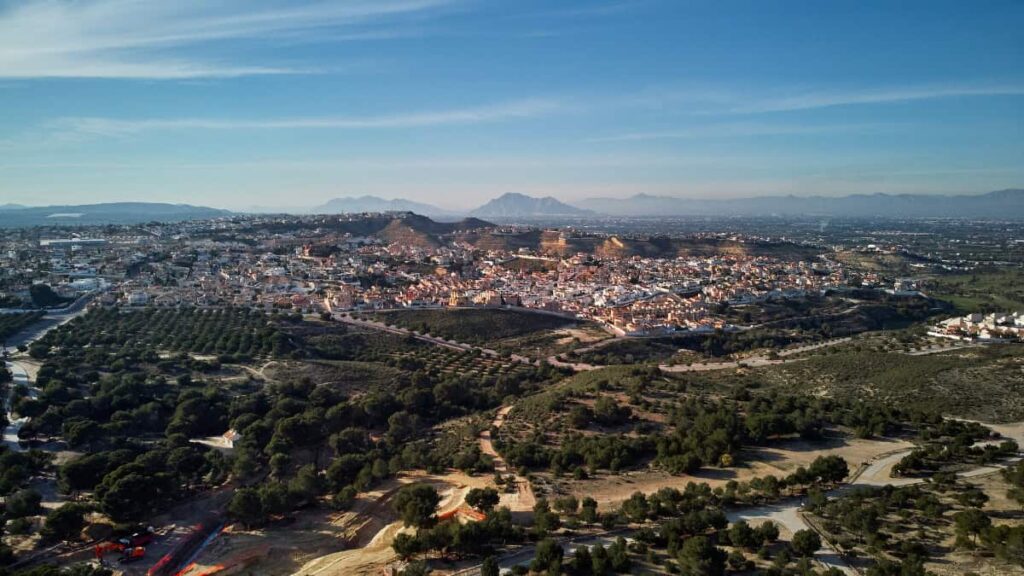In recent years, investing in real estate in Spain has become one of the most attractive opportunities in Europe. The country offers a rare combination of financial stability, high rental demand and the relaxed Mediterranean lifestyle that so many buyers are looking for. From the Costa Blanca to the Costa del Sol and the Balearic Islands, investors are finding strong returns and long-term security. But beyond the sunshine and beaches, understanding how the Spanish property market works is essential for making the right decisions. This guide explains what makes Spain’s real estate market so appealing and what to consider before investing.
Why Spain remains a top destination for property investors
Spain has long been one of Europe’s leading real estate markets, combining attractive property prices with strong lifestyle and rental appeal. The country’s climate, healthcare, and infrastructure continue to draw retirees, remote workers, and investors from across the world. According to national data, regions such as Alicante, Malaga, and Valencia consistently rank among the top areas for foreign property purchases.
The Costa Blanca is especially popular for those looking for long-term value. With modern villas, seaside apartments, and growing infrastructure, it offers both affordability and quality. Meanwhile, the Costa del Sol attracts luxury investors and those seeking exclusive coastal living. Both regions provide excellent connectivity through international airports and steady demand for holiday rentals.
Understanding the legal process
Buying property in Spain is straightforward if you follow the correct steps. Every foreign investor must first obtain an NIE number (Número de Identificación de Extranjero), which serves as a tax identification number. Once this is in place, the next steps include opening a Spanish bank account, signing a reservation contract, and completing the transaction before a public notary.
The notary ensures that the property is legally registered and that all taxes are paid. After signing the Escritura de Compraventa (title deed), ownership is registered in the Land Registry (Registro de la Propiedad). Legal assistance is highly recommended to check for outstanding debts, confirm property boundaries, and verify the seller’s ownership.
Taxes and fees to expect
Investors should budget for additional costs beyond the purchase price. These include:
- Property Transfer Tax (ITP) – typically between 6% and 10% for resale properties, depending on the region.
- VAT (IVA) – 10% for new-build properties.
- Stamp Duty (AJD) – usually between 1% and 1.5%.
- Notary and registry fees – around 1–2% combined.
- Legal and administrative fees – depending on the complexity of the purchase.
Ongoing costs include annual property tax (IBI), community fees, insurance, and income tax on rental earnings. Investors who rent out their property should also be aware of regional rules on tourist rental licenses.
Investment opportunities across Spain
The Spanish market offers several types of real estate investments, each suited to different goals.
- Buy-to-let properties: Ideal for generating passive income through short-term holiday rentals or long-term tenants.
- Second homes: Combining lifestyle and investment benefits, allowing owners to use the property part of the year while renting it out the rest.
- Capital growth opportunities: Buying in up-and-coming areas such as Alicante, Murcia, or Valencia, where property values continue to rise.
- Golden Visa investment: Non-EU citizens who invest at least €500,000 in Spanish property may qualify for residency under Spain’s Golden Visa program.
Each approach requires clear financial planning and knowledge of local market conditions.
Why the Costa Blanca stands out
Among Spain’s coastal regions, the Costa Blanca offers one of the best balances between affordability, demand, and quality of life. Property prices remain accessible compared to the Balearic Islands or Costa del Sol, while the area still provides strong rental yields. Popular towns such as Altea, Calpe, Moraira, and Torrevieja are well-developed yet retain authentic Spanish charm.
The region also benefits from international connectivity through Alicante and Valencia airports, a wide range of amenities, and steady tourism that keeps rental demand high throughout the year. For investors seeking sustainable long-term growth, the Costa Blanca represents both a profitable and enjoyable choice.
Economic and lifestyle advantages
Beyond financial returns, property ownership in Spain provides access to a relaxed, outdoor-oriented lifestyle. Residents enjoy mild winters, vibrant food culture, and one of the best healthcare systems in Europe. Infrastructure for remote work and international schooling continues to expand, making Spain appealing not only for retirees but also for young professionals and families.
With real estate prices still competitive compared to Western Europe, and a legal system that protects foreign ownership, Spain continues to offer security and value.
Building long-term value through property investment in Spain
Investing in real estate in Spain offers more than just financial returns; it provides a foundation for a balanced and fulfilling lifestyle. The country’s consistent demand for quality housing, stable economy and exceptional quality of life make it a reliable market for both seasoned and first-time investors. Whether you are looking for rental income, capital appreciation or a second home by the sea, Spain offers diverse opportunities that combine profit with pleasure.
For those considering property ownership on the Costa Blanca, working with an experienced local partner makes all the difference. Casa Capitals helps investors and homeowners navigate the entire process, from property selection and purchase guidance to ongoing management and rental support. Our local expertise ensures every property is handled with transparency, care and long-term strategy. With Casa Capitals, investing in Spain becomes a secure and rewarding experience that lets you truly enjoy the Mediterranean lifestyle.




